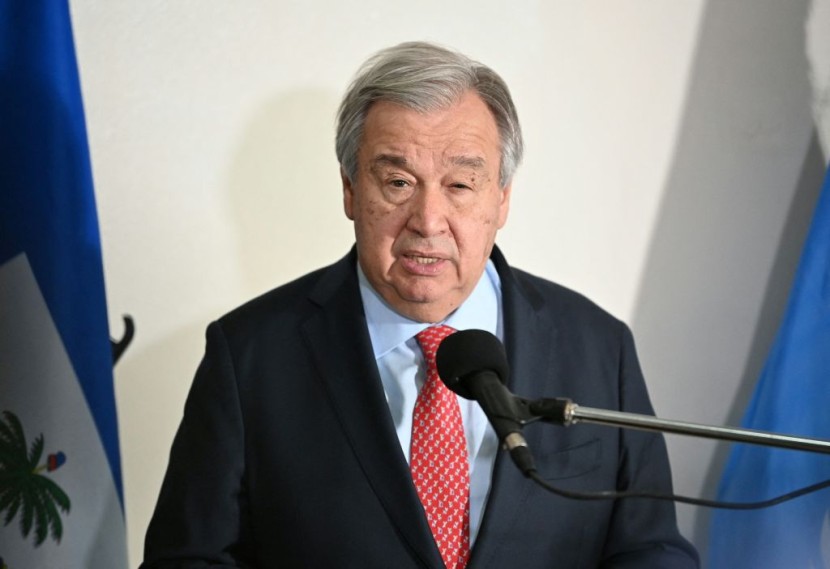
Representatives of the United Nations reiterated their call for an intervention force to stabilize Haiti, citing the increasing number of extrajudicial murders of suspected gang members as evidence of the nation's insecurity.
Haiti, the poorest nation in the Western Hemisphere, has been beset by humanitarian, political, and security crises, with groups terrorizing the population with frequent kidnappings, rapes, and murders.
UN Chief Calls for Robust International Police Force in Haiti
UN Secretary-General Antonio Guterres and Haitian Prime Minister Ariel Henry have called for an international force to help quell the escalating violence for months. Still, no nation has volunteered to head the operation, as per SCMP. Without a sufficient security apparatus to combat the endemic gangs, Haitians in Port-au-Prince have begun taking matters into their own hands, according to UN Haiti envoy Maria Isabel Salvador's Thursday report to the Security Council.
The UN office in Haiti, known as BINUH, "has documented the shooting of at least 264 alleged gang members by vigilante organizations," she said, adding that the trend adds "another layer of complexity" to the security situation in the country.
In one of April's first horrific incidents, civilians seized several gang members from police custody, beat them to death, and set their corpses on fire in the street. A few weeks later, Haiti's Minister for External Cooperation, Ricard Pierre, warned that "civil conflict" was imminent without foreign intervention.
Guterres visited Port-au-Prince over the weekend before attending the CARICOM summit of Caribbean nations, where Haiti was a key topic. On Thursday, he reiterated his call for an international force, characterizing the Haitian population as "trapped in a living horror."
Per CBS News, Guterres urged simultaneous action on three fronts: restoring security, pursuing a political solution that restores democratic institutions, and addressing urgent humanitarian needs.
He urged donors to swiftly respond to the United Nations' appeal for $720 million to assist more than three million people, which is only 23 percent funded. According to the head of the United Nations, these three measures are necessary to break Haiti's cycle of suffering and pave the way out of the current crisis.
Haiti's Gang Violence
On Thursday, at a summit of Caribbean leaders in Guyana, US Secretary of State Blinken conferred with Haitian Prime Minister Ariel Henry and reaffirmed US support for deploying a multinational force. However, Blinken stated that another nation, not the United States, would need to assume the "dominant nation role."
Ambassador Jeffrey DeLaurentis, the United States' interim deputy representative to the United Nations, stated that the United States has provided $110 million in humanitarian assistance to Haiti this year. DeLaurentis warned, "However, without enhanced security, the humanitarian situation in Haiti will continue to deteriorate."
Andrew Holness, the prime minister of Jamaica, informed members of the Security Council via videoconference that the intergovernmental organization of the Caribbean Community, or CARICOM, "will provide the Haitian National Police with personnel training and capacity development."
Recently, Holness hosted a three-day meeting in Kingston with over fifty Haitian stakeholders to discuss transition and interim governance. Holness described the imposition of sanctions on gang members as "a positive and significant step," but he added that sanctions alone are insufficient.
Related Article : Biden Expresses 'Full Support' for Sweden's NATO Bid, Hosts Prime Minister at White House








